In the world of finance, it’s not always about managing money and investments. Your job as an investment banker often requires you to control other people with cash and investments. You might not directly work with the money, but you’ll be responsible for ensuring that investors are happy and receiving a good return on their investment. To do this, you need to create a resume tailored to your specific career objective. This article will provide an example of an investment banker’s resume and tips on creating one of your own if you want to target this specific role when looking for new opportunities. Investment bankers handle capital markets activities such as underwriting and advising companies on issuing securities and raising capital in the primary market while advising clients regarding secondary market transactions. In addition, many banks have departments dedicated purely to investing, where analysts identify potential asset classes based on risk profile, performance metrics, valuation, alternative investment vehicles, and more.
Investment Banker Resume Example

Download This Investment Banker Resume as PDF
Investment Banking Summer Analyst Resume Example
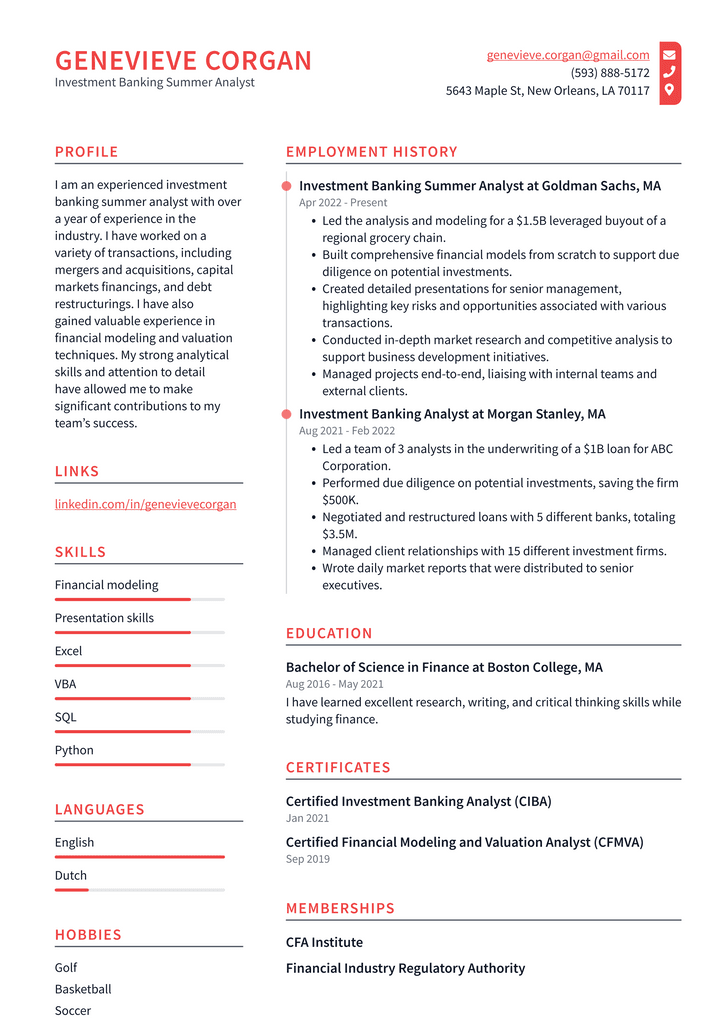
Download This Investment Banking Summer Analyst Resume as PDF
Director of Investment Banking Resume Example
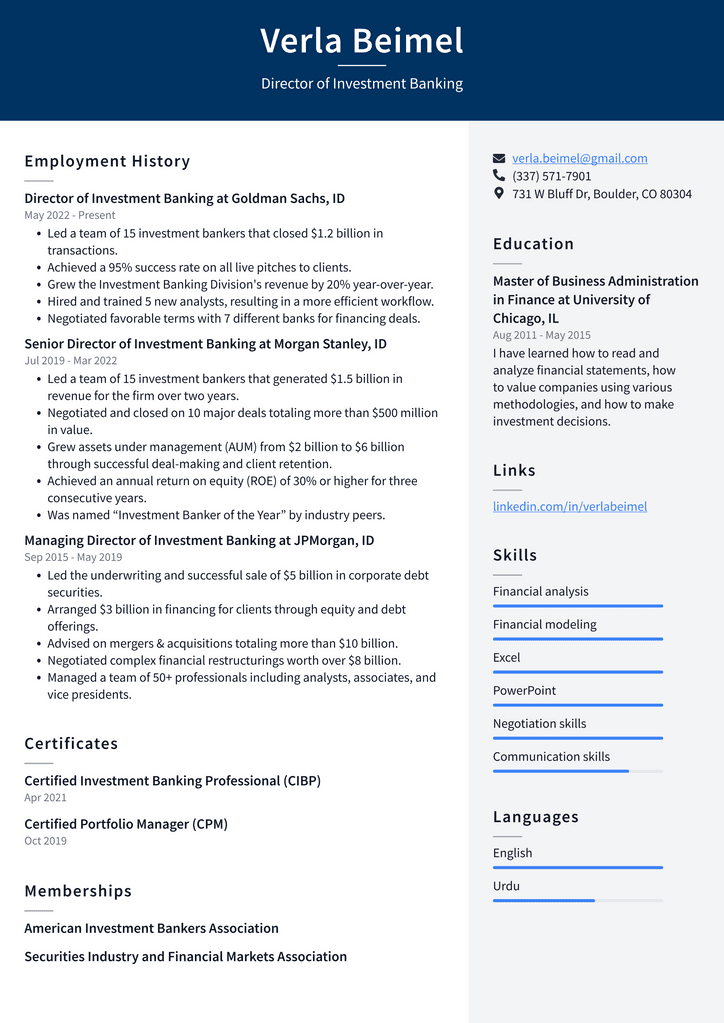
Download This Director of Investment Banking Resume as PDF
Investment Banking Associate Resume Example
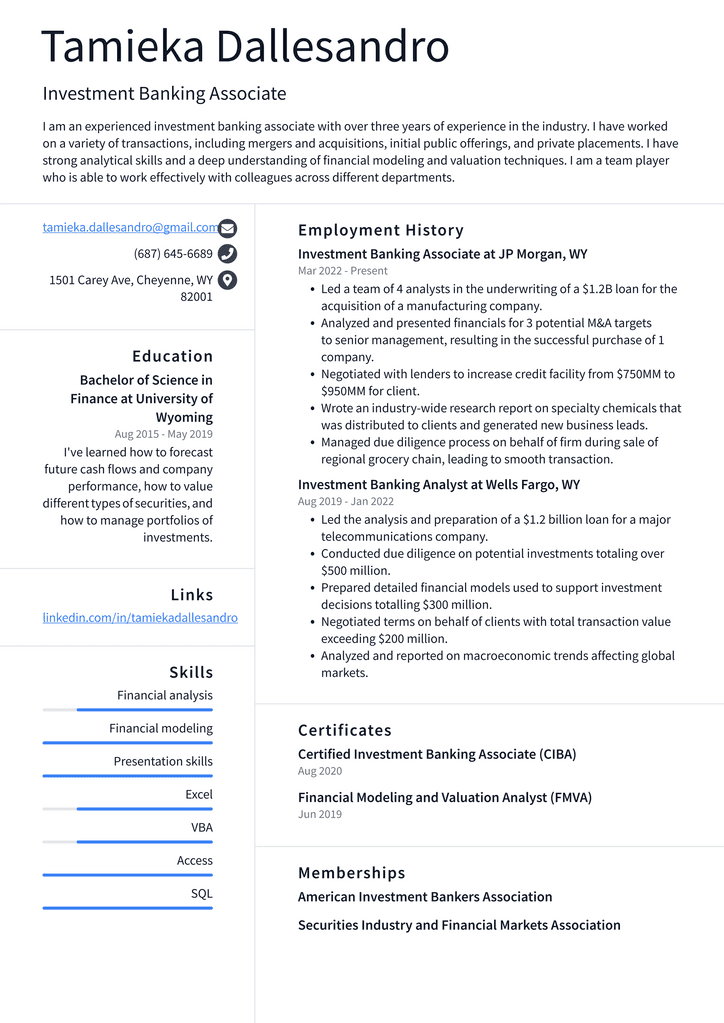
Download This Investment Banking Associate Resume as PDF
Investment Banking Analyst Resume Example
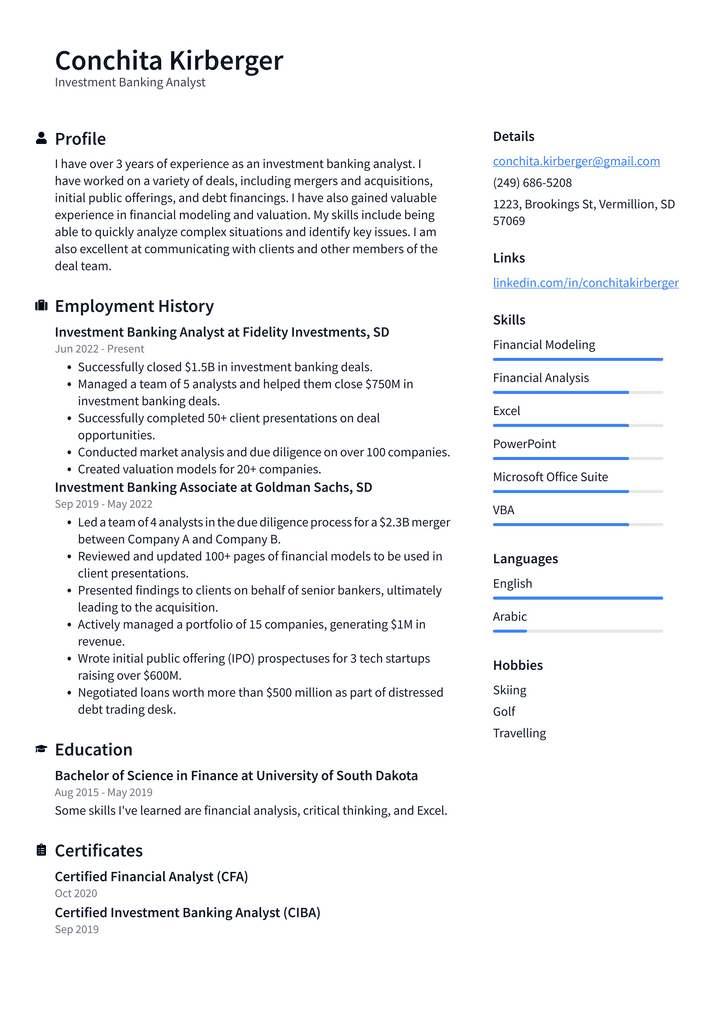
Download This Investment Banking Analyst Resume as PDF
Investment Banking Vice President Resume Example
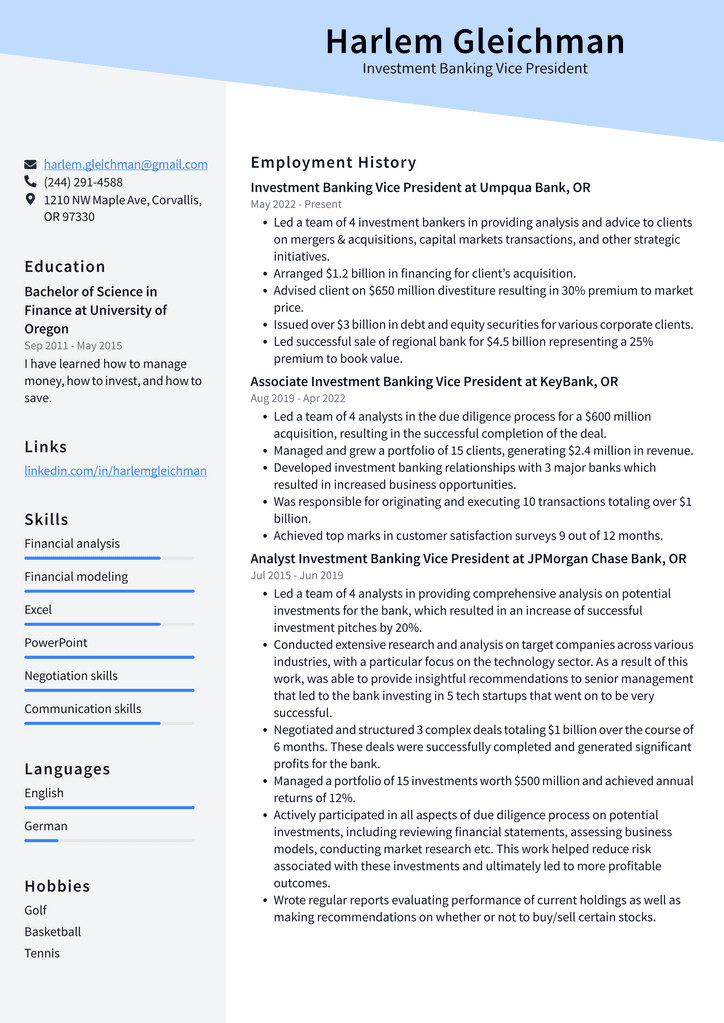
Download This Investment Banking Vice President Resume as PDF
Managing Director of Investment Banking Resume Example
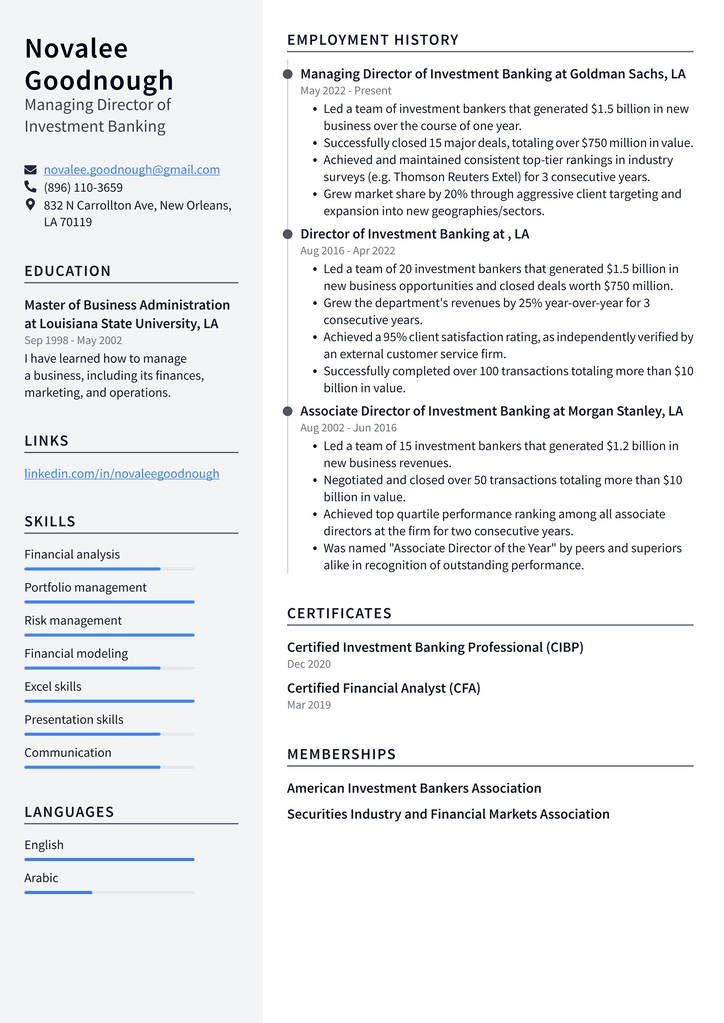
Download This Managing Director of Investment Banking Resume as PDF
Resume Tips for Investment Bankers
When it comes to resume tips for investment bankers, you’ll want to focus on your transferable skills and the value you can bring to the table for potential employers. One of the main things that investment bankers have in common with other professions is that you’ll have various skills and responsibilities that you’ll need to highlight on your resume. You’ll want to ensure that you highlight all of your relevant work experience and any volunteer work or special certifications you may have received. This will help you stand out from other candidates applying for the same jobs.
Bullet Points are Your Friend
Bullet points are a great way to showcase your transferrable skills and any certifications or additional training you’ve completed while in school or during your career. If you’re new to the workforce, you may want to consider using bullet points to list any volunteer work or extracurricular activities that you’ve done. For investment bankers, some essential skills to showcase are your ability to communicate well, your strong analytical skills, the ability to manage others and complete projects on time, and your problem-solving capabilities.
Summary of Qualifications
One of the best resume tips for investment bankers is to include a summary of qualifications at the top of your resume. This is a great way to quickly highlight your most relevant skills and work experience so that hiring managers can see them immediately. When writing a summary of qualifications, make sure to on your transferrable skills and any unique characteristics that e gained from your previous work experience that would make you a valuable asset to a new employer.
Education
If your education is relevant to the position that e applying for, then you should include it on your resume. If it isn’t, you may want to leave it off so that you don’t appear overqualified or as if you’re trying to overstate your qualifications. A degree in finance or a related field is almost always necessary for investment bankers. If you have a degree in a different area, you may want to consider pursuing an investment banking internship during your time in school. This will help you gain valuable experience that you can include on your resume.
Experience
The trick to writing a resume for an investment banker is to focus on the skills you’ve gained throughout your career. Most banks won’t care about the same tasks you’ve performed but the skills you’ve gained from those tasks. For example, if you’ve worked as a marketing manager, then e likely had to develop strategies, analyze their effectiveness, and manage a team. These are skills that you can apply to any industry. However, chances are, the tasks you perform may not apply to the finance industry, which is why focusing on your skills is so important.
Professional Skills
Suppose you’ve developed professional skills during your career, such as learning how to use specific software programs, completing certification courses, or sitting on a board of directors. In that case, you should include this information on your resume. For example, many investment bankers must learn to use specific software, such as Bloomberg or FactSet. You should include this on your resume if you’ve been required to learn one (or both) of these programs.
Conclusion
When writing a resume for an investment banker, the most important thing is to ensure you’ve included all of your relevant experience and skills. The best investment bankers can quickly and effectively analyze a situation, come up with a solution, and then execute that solution. With a strong resume, you can show potential employers you have what it takes to succeed in this role.